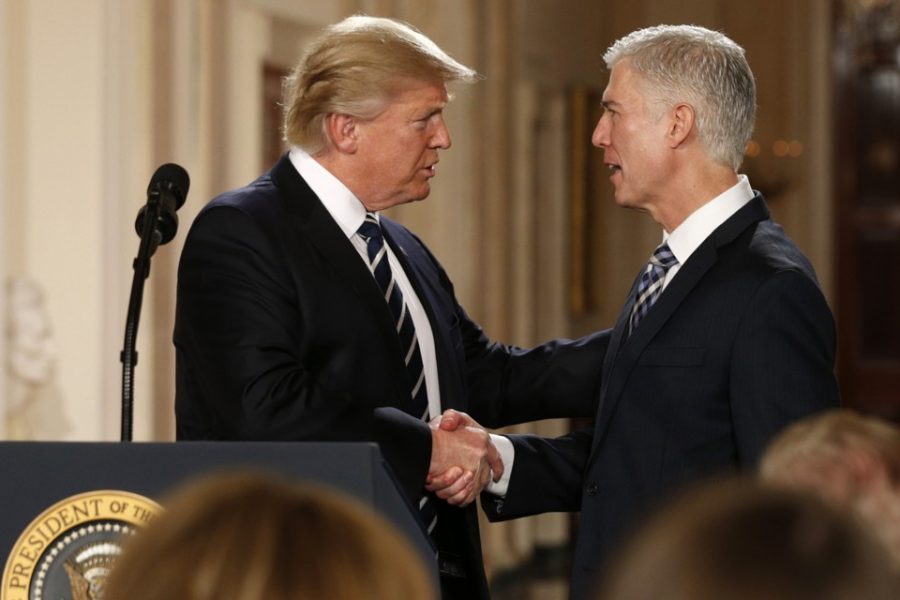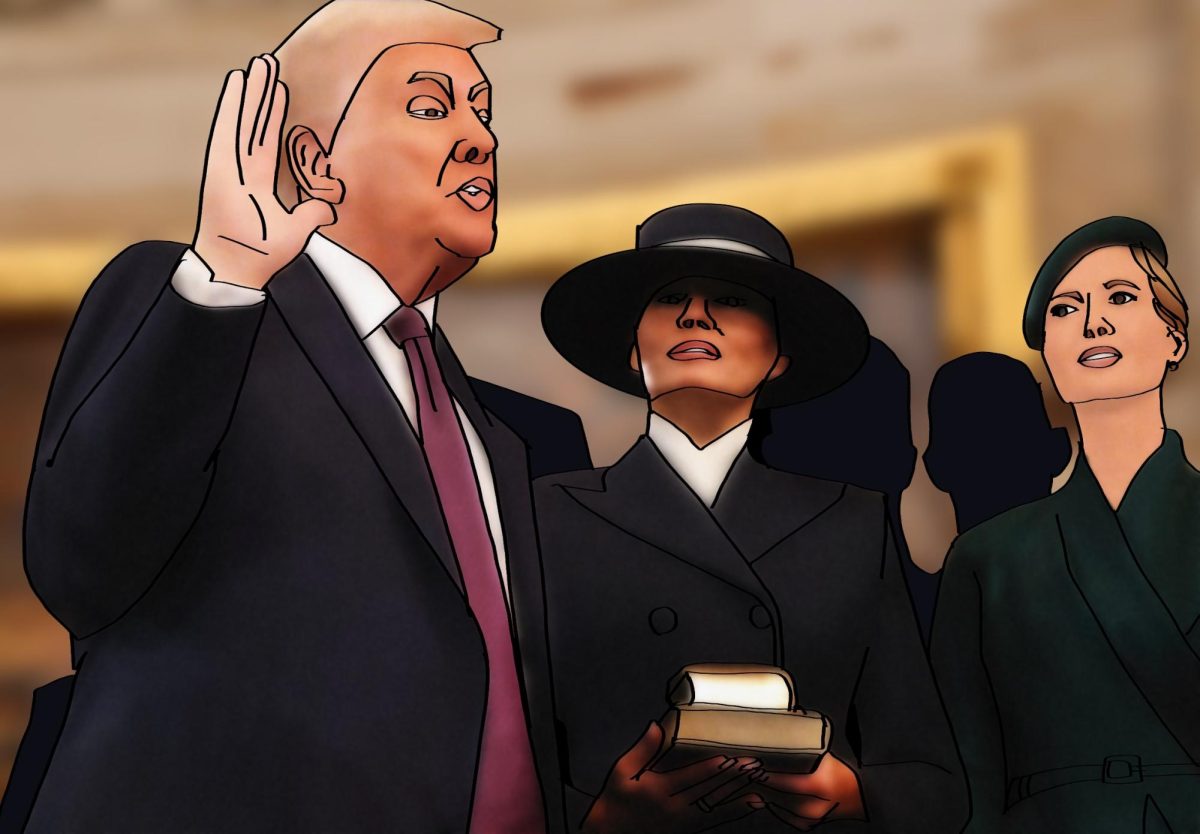The Senate Goes Nuclear
President Donald Trump shakes hand with Supreme Court nominee, Neil Gorsuch.
May 4, 2017
Neil Gorsuch was nominated to the Supreme Court by the President of the United States, Donald Trump, a decision heralded by conservatives everywhere (even those vehemently against Trump), and widely criticized and condemned by most liberals. A common sobriquet for him has been “Scalia 2.0”, referring to former Supreme Court Justice Antonin Scalia, who was similar in ideologies. For the past three months, Gorsuch has gone through the long and tedious process of being confirmed, which has been met with much resentment as well as resistance by democratic representatives and senators alike.
The resistance against Gorsuch is a testament to the major stigma against Trump. A selection of this stature, with this much experience and knowledge of law and precedent, should not be met with an amount of debate and controversy. He is an archetypal conservative, pushing his values of constitutionalism and textualism back into the Supreme Court.
Politicians, and party supporters in general, have been continuously looking to the courtroom as a way of spurring change rather than looking towards actual elected leaders. This has removed the Judiciary’s one shining attribute: its independence. This statement is epitomized in the recent Senate hearings for Gorsuch’s confirmation, which has turned into a all-out political warfare between Republican Vs. Democrat.
“I think people should be less concerned with the party affiliation of judges/justices and more concerned about whether they will uphold the constitution. People also shouldn’t always be so against certain people that are nominated to courts (supreme court, district courts, etc.) because we need constant stability in the judicial system,” sophomore Sutton Payne said.
This week, after being confirmed by the Senate Judiciary Comitte, Gorsuch has been passed on to the Full Senate. Senate Majority Leader Mitch McConnell held a vote on Tuesday, but he failed to field the 60 votes necessary to move on to a final vote. “We are experiencing here the first partisan filibuster of a Supreme Court nominee in the history of the country,” said McConnell after the vote failed. The Democrats are blocking the inevitable vote on Gorsuch’a actual confirmation, and although Republicans have the majority in Senate, 60 votes are necessary, and there are only 52 republican senators. The democrats can continuously block the motion to move the vote for Gorsuch’s confirmation.
This is where the Nuclear Option comes into play. McConnell recognizes this as, potentially, the only option for moving the final confirmation vote. Through a series of parliamentary procedures and rulings, the Senate inherent rules could be changed regarding ending filibustering. It would give the ability to the Senate to end a filibuster by a simple majority vote. The Republicans, vehemently in favor of Gorsuch, would easily pass this motion and send him to final vote.
“I think it was necessary to finally get his confirmation over with because Scalia died over a year ago, and the court obviously is dealing with many complex cases on a daily basis. Democrats shouldn’t have been so resistant anyways because in my opinion, he was pretty moderate,” junior Max Rego said.
Implementing the Nuclear Option here could set a proceedings for all Supreme Court nominations in the near future. This is a drastic change in Senate precedent, and implementing the rule would allow Gorsuch to be easily confirmed in a simple majority vote. Obviously this is the optimal situation for republicans, but without the removal of the obstacle that is the Democratic filibuster, this outcome seems difficult to reach.
The entire process as a whole is more of a statement than an actual political method. The Democratic senators know that there is no avoiding a Gorsuch confirmation, but they want to make a statement nonetheless. It’s payback for the prolonged ordeal that the Republicans put Obama’s candidate through, in order to prevent Obama from getting his pick for the Supreme Court confirmed. In another example of the Court getting extremely politicized, this entire series of event could’ve been avoided easily, and it was a pointless endeavor by the Democrats to try to filibuster.












